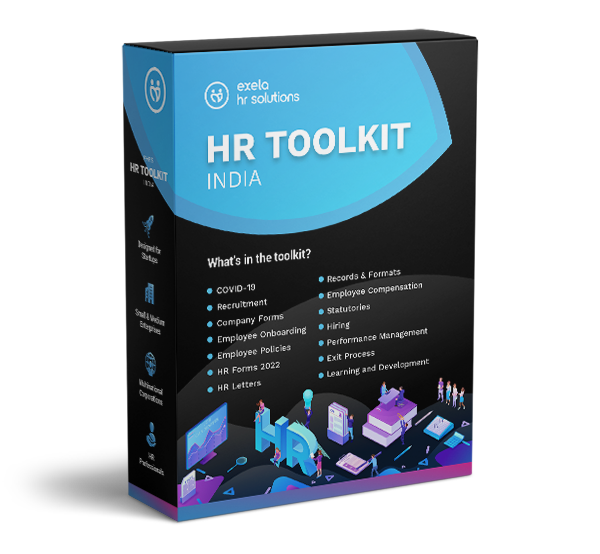
HR and payroll managers face a relentless battle in maintaining effective payroll management. Amidst the myriad challenges of evolving regulations, the need for data accuracy, and the ever-present demand for efficiency, they stand at the forefront of a complex system. However, in these challenges lie opportunities.
They signify the chance to not only survive but thrive, to master the art of compliance, data precision, and timely scheduling. These hurdles are the crucible in which HR and payroll managers forge a resilient and efficient payroll system, and they are the architects of an organizational backbone that ensures not only financial stability but also the trust and satisfaction of their workforce.
The ten key elements we've explored serve as a guiding light for these managers, offering a path to not just survive but thrive. These elements encompass compliance, data accuracy, timely scheduling, precise deductions, benefits administration, and more. Each one plays a crucial role in creating a well-oiled payroll system. Dive in below to learn more about these ten essential things that every payroll manager must know.
10 key things HR and payroll managers need to know
-
Compliance and Regulation Adherence
Ensuring compliance with tax laws, labor regulations, and reporting requirements is a cornerstone of effective payroll processing. Here's a concise exploration of this crucial aspect:
-
Legal Framework for Payroll Processing:
-
Payroll compliance starts with a thorough understanding of federal, state, and local labor laws and tax regulations.
-
HR and payroll managers must stay informed about changing legislation to avoid non-compliance risks.
-
-
Tax Deductions and Withholding:
-
Accurate income tax deductions are essential. Compliance requires correctly calculating federal and state tax withholdings for each employee.
-
Timely and precise tax reporting to the IRS and other tax authorities is mandatory.
-
-
Reporting and Documentation:
-
Compliance involves maintaining comprehensive records and documentation related to payroll.
-
This includes wage statements, time records, benefit records, and tax documents.
-
-
Benefits and Leave Regulations:
-
HR and payroll managers must ensure compliance with regulations related to employee benefits, including healthcare, retirement plans, and leave policies.
-
-
Avoiding Legal Pitfalls:
-
Non-compliance can result in penalties, costly fines, and even legal action.
-
Vigilance in adhering to regulations is paramount to prevent potential legal consequences.
-
-
-
Accurate Data Management
Accurate data management is the bedrock of effective payroll processing. Here's a succinct exploration of this critical element:
-
Employee Data Precision:
-
The accuracy of employee data is fundamental. This includes names, addresses, Social Security numbers, and banking details.
-
Errors in this information can lead to payment discrepancies and potential legal issues.
-
-
Data Verification and Validation:
-
Implementing verification and validation processes is key. This includes verifying employee identities, validating tax information, and ensuring consistency in records.
-
Automated systems can help reduce errors and discrepancies.
-
-
Data Security and Confidentiality:
-
Protecting employee data is paramount. Compliance with data privacy regulations is essential.
-
Unauthorized access to sensitive information can lead to breaches and legal ramifications.
-
-
Streamlining Data Entry:
-
Reduce manual data entry whenever possible. Automated systems and integration with HR software can minimize errors.
-
This enhances efficiency and reduces the likelihood of data inaccuracies.
-
-
-
Timely Payroll Scheduling
Timely payroll scheduling is essential for maintaining employee trust and operational stability. Here's a succinct exploration of its significance:
-
Consistent Payroll Calendar:
-
Establishing a consistent payroll calendar is crucial. Employees rely on receiving their paychecks on specific dates.
-
Predictable pay periods contribute to financial planning and stability for employees.
-
-
Factors in Pay Period Selection:
-
Organizations must consider factors such as legal requirements, company policies, and budgeting when determining pay periods.
-
Different industries and states may have specific regulations regarding payroll frequency.
-
-
Meeting Payroll Deadlines:
-
Timeliness in processing and disbursing payroll is non-negotiable. Delays can result in disgruntled employees and legal consequences.
-
Efficient payroll systems and workflows are essential for meeting deadlines consistently.
-
-
Communication with Employees:
-
Communicating payroll schedules and any changes is vital. Employees should be aware of when they can expect their compensation.
-
Transparent communication fosters trust and reduces anxiety among the workforce.
-
-
Also Read: Stay Ahead of the Curve: HR Payroll Software Trends for 2024
-
Tax Deductions and Withholding
Accurate tax deductions and withholding are crucial for both employees and organizations. Here's a concise exploration of their importance:
-
Income Tax Deductions:
-
Accurate calculation of income tax deductions is vital. Errors can lead to financial burdens for employees and legal consequences for employers.
-
Compliance with federal and state tax laws is essential.
-
-
Employee Withholding:
-
Employers must withhold the correct amount of income tax, Social Security, and Medicare from employees' paychecks.
-
Consistent and precise withholding ensures that employees meet their tax obligations without financial stress.
-
-
Legal Compliance:
-
Non-compliance with tax withholding laws can result in penalties and legal complications for organizations.
-
Staying informed about tax law changes is essential to ensure proper deductions.
-
-
Employee Benefits and Contributions:
-
Managing deductions for employee benefits, such as retirement plans or healthcare, requires precision.
-
Proper deduction management contributes to employee financial security and organizational compliance.
-
-
-
Benefits Administration
Efficient benefits administration is integral to the well-being of employees and the smooth functioning of organizations. Here's a brief exploration of its significance:
-
Employee Welfare:
-
Benefits such as healthcare, retirement plans, and leave policies are essential to employee well-being.
-
Accurate and timely administration of benefits contributes to employee satisfaction and loyalty.
-
-
Cost Management:
-
Benefits can represent a significant portion of an organization's expenses. Efficient administration helps control costs.
-
Proper management ensures that benefits are utilized optimally and cost-effectively.
-
-
Compliance with Regulations:
-
Benefits administration must adhere to legal regulations, such as the Affordable Care Act (ACA) and the Family and Medical Leave Act (FMLA).
-
Compliance prevents legal issues and ensures that employees receive their entitled benefits.
-
-
Employee Communication:
-
Transparent communication about benefits is vital. Employees should understand their options, coverage, and any changes.
-
Clear communication fosters trust and helps employees make informed choices.
-
-
-
Deductions and Garnishments
Accurate management of deductions and garnishments is crucial for both employees and organizations. Here's a concise exploration of their importance:
-
Wage Garnishments:
-
Wage garnishments are court-ordered deductions that may affect an employee's paycheck.
-
Compliance with these legal orders is non-negotiable, as non-compliance can lead to legal consequences for the organization.
-
-
Confidential Handling:
-
Deductions and garnishments often involve sensitive and private matters, such as child support or debt repayments.
-
It is essential to handle these matters with the utmost confidentiality and respect for employees' privacy.
-
-
Communication with Affected Employees:
-
Employees subject to wage garnishments should be informed and guided through the process.
-
Transparent and empathetic communication helps reduce stress and fosters trust.
-
-
Compliance with Legal Requirements:
-
Organizations must comply with legal requirements regarding deductions and garnishments, including the amounts to be withheld.
-
Non-compliance can lead to fines and legal complications.
-
-
-
Payroll Software and Automation
Leveraging payroll software and automation is a game-changer in efficient payroll processing. Here's a concise exploration of their significance:
-
Streamlined Processes:
-
Payroll software automates routine tasks, such as data entry, calculations, and tax deductions.
-
Automation reduces manual effort and minimizes the risk of errors, resulting in a more streamlined process.
-
-
Accuracy and Compliance:
-
Payroll software ensures precise calculations and adherence to tax laws and regulations.
-
Automated systems help organizations stay compliant with evolving legal requirements.
-
-
Cost Efficiency:
-
Automation reduces the need for manual labor, lowering payroll processing costs.
-
It also optimizes resource allocation, directing human efforts toward more strategic tasks.
-
-
Reporting and Record-Keeping:
-
Payroll software maintains comprehensive records and generates reports for management and auditing.
-
Efficient record-keeping enhances transparency and simplifies the auditing process.
-
-
-
Payroll Reporting and Record-Keeping
Effective payroll reporting and record-keeping are essential for maintaining transparency and compliance. Here's a brief exploration of their significance:
-
Comprehensive Records:
-
Maintaining meticulous payroll processing records is crucial for documenting payments, deductions, and tax withholdings.
-
Accurate records help organizations meet legal requirements and support auditing processes.
-
-
Reporting for Management:
-
Payroll reporting generates valuable insights for management, allowing for informed decision-making.
-
These reports offer visibility into labor costs, trends, and financial planning.
-
-
Legal Compliance:
-
Adherence to labor laws and tax regulations requires organized and accessible payroll processing records.
-
Organizations must be prepared to demonstrate compliance in the event of an audit.
-
-
Transparency and Trust:
-
Transparent record-keeping and reporting foster trust among employees.
-
Employees can access and review their pay stubs and records, enhancing transparency and reducing disputes.
-
-
-
Employee Self-Service Portals
Employee self-service portals are transformative tools in modern payroll and HR management. Here's a concise exploration of their significance:
-
Empowering Employees:
-
Self-service portals give employees direct access to their pay stubs, tax documents, and benefit information.
-
This empowers employees to manage their own payroll and benefits, reducing HR's administrative burden.
-
-
Efficiency and Accuracy:
-
Portals enable employees to update personal information, such as addresses or tax withholdings, directly.
-
This reduces data entry errors and ensures that records are up-to-date and accurate.
-
-
Improved Communication:
-
Portals facilitate clear and real-time communication between employees and HR.
-
Employees can access important information, ask questions, and receive guidance conveniently.
-
-
Cost Savings:
-
By reducing manual administrative tasks, self-service portals contribute to cost savings.
-
HR departments can focus on strategic activities while employees manage routine tasks.
-
-
-
Continuous Improvement and Adaptation
In the dynamic realm of payroll processing, continuous improvement and adaptation are paramount. Here's a brief exploration of their significance:
-
Process Evaluation:
-
Regularly assess the payroll process to identify areas for improvement.
-
Seek feedback from employees, HR, and other stakeholders to uncover bottlenecks and inefficiencies.
-
-
Technology Integration:
-
Embrace emerging technologies and trends in HR and payroll management.
-
Leverage automation, data analytics, and cloud-based solutions to enhance efficiency.
-
-
Training and Education:
-
Invest in ongoing training for HR and payroll staff to keep them up to date with industry best practices.
-
Ensure that employees are proficient in using payroll software and self-service portals.
-
-
Adaptation to Change:
-
Be prepared to adapt swiftly to changes in tax laws, labor regulations, and industry standards.
-
A flexible approach to process modifications is key to maintaining compliance and efficiency.
-
-
Conclusion
In HR and payroll management, precision and efficiency are paramount. We've explored the ten key elements that HR and payroll managers must prioritize to streamline their processes effectively.
These elements encompass compliance, data accuracy, timeliness, deductions, benefits, and more, all of which are critical for a well-functioning payroll system.
Exela HR Solutions is your trusted partner for optimizing payroll and HR processes. Our expertise and advanced technology empower organizations to enhance efficiency, ensure compliance, and excel in payroll processing. Get in touch with our experts to learn more about our services.
Get Exela HR Solutions now!
DISCLAIMER: The information on this site is for general information purposes only and is not intended to serve as legal advice. Laws governing the subject matter may change quickly, and Exela cannot guarantee that all the information on this site is current or correct. Should you have specific legal questions about any of the information on this site, you should consult with a licensed attorney in your area.





